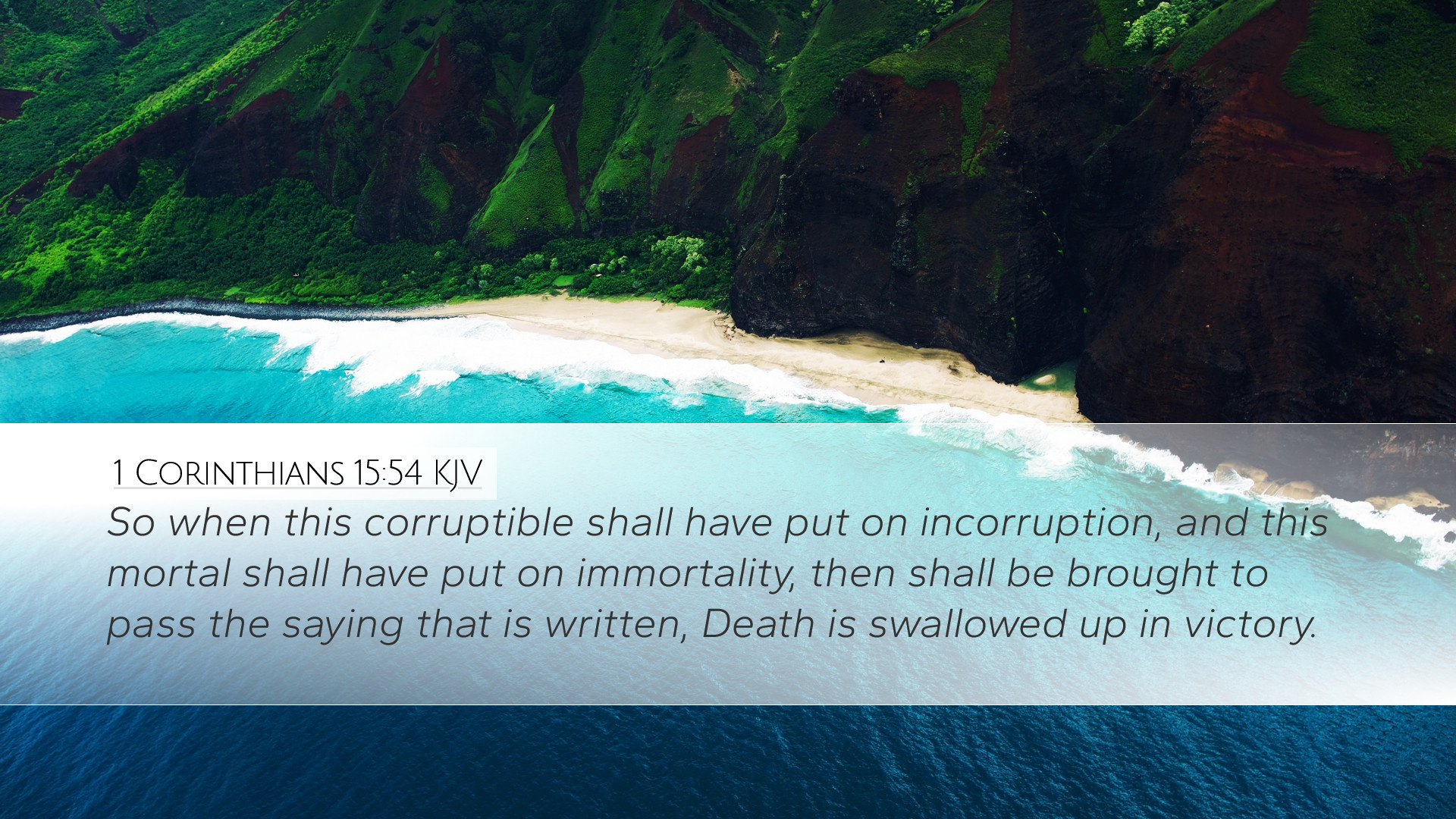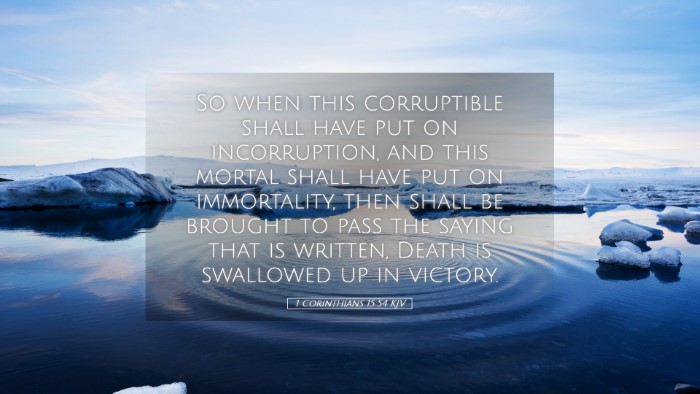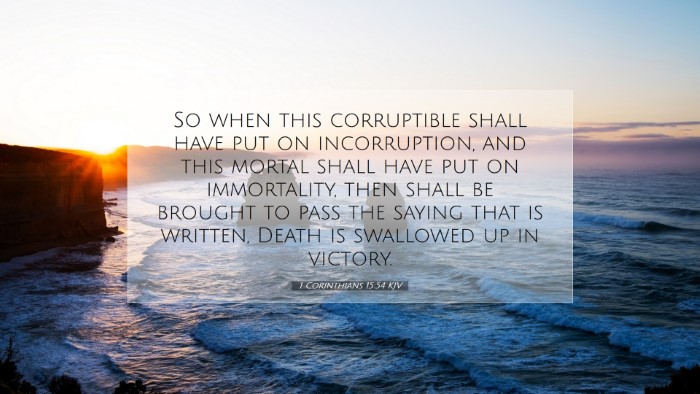Commentary on 1 Corinthians 15:54
Bible Verse: "So when this corruptible shall have put on incorruption, and this mortal shall have put on immortality, then shall be brought to pass the saying that is written, Death is swallowed up in victory."
Introduction
1 Corinthians 15:54 serves as a pivotal verse in the broader context of Apostle Paul’s teaching on the resurrection of the dead. It encapsulates the victory of life over death, making profound theological implications about the state of believers post-resurrection. This commentary synthesizes insights from public domain commentaries, providing a rich tapestry of understanding for pastors, theologians, and students of Scripture.
Theological Significance
This verse highlights the transformative nature of resurrection. Matthew Henry notes that the “corruptible” represents the frail and mortal state of human existence, while “incorruption” signifies eternal life in Christ. The transition from mortality to immortality reflects God’s promise of redemption and the ultimate restoration of humanity.
Victory Over Death
Paul's assertion that “Death is swallowed up in victory” points to the complete subjugation of death through Christ’s resurrection. Albert Barnes emphasizes that the phrase indicates not just a victory, but a total defeat of death's power. In this context, believers can relish the hope that they are not subject to eternal separation from God but rather transformed into a new existence.
Corruption to Incorruption
The term “corruptible” suggests the inevitable decay and fragility of the human body. Adam Clarke articulates that the body is finally free of sin, disease, and death. This corruptible state is fundamentally opposed to the nature of God, who is eternal and unchanging. Thus, the promise of “putting on incorruption” signifies the removal of all imperfections, aligning the believer's state with divine holiness.
The Role of Resurrection
Pursuing the notion of resurrection, this transformation is rooted in the finished work of Christ. As Henry notes, this transition showcases not just a physical change but a spiritual metamorphosis, facilitating believers' entry into an everlasting relationship with God. The resurrection power is the cornerstone of Christian faith, affirming that through Christ, the grave cannot hold the faithful.
Death’s Finality and Triumph
The verse echoes a prophetic declaration about death's defeat. Paul draws upon the prophetic literature, emphasizing the fulfillment of biblical promises regarding death and resurrection. Barnes points out the significance of this declaration as it outlines the transition from despair into hope, portraying death as a vanquished foe rather than a perpetual master over humanity.
Spiritual Implications for Believers
For the believer, this passage serves as an assurance of eternal life. Clarke explains that victory over death is not merely theoretical; it carries practical implications for how Christians live in the present. The knowledge of eternal life can inspire believers to live victoriously, reminding them that earthly struggles are temporary compared to the glory that awaits them.
Application for the Christian Life
In light of the profound truths found in 1 Corinthians 15:54, pastors and leaders are encouraged to instill hope and resilience within their congregations. This verse should challenge believers to reflect on their eternal destiny and encourage them to live in anticipation of Christ’s return and the promised resurrection.
Hope in Uncertain Times
The current global landscape reveals an array of uncertainties, making the promise of resurrection and victory over death even more relevant. Henry's reflection suggests that in facing adversities, believers can find solace in the assurance of eternal life, galvanizing them to spread the message of hope within their communities.
Conclusion
1 Corinthians 15:54 distills the essence of Christian hope and resurrection. The insight from public domain commentaries collectively reinforces that through Christ’s victory, believers are called to embrace their identity as eternal beings. The transition from corruption to incorruption serves as both a promise and an impetus for a transformed life awaiting the glorious coming of the Lord.
References:
- Matthew Henry Commentary
- Albert Barnes' Notes on the Whole Bible
- Adam Clarke's Commentary on the Bible


